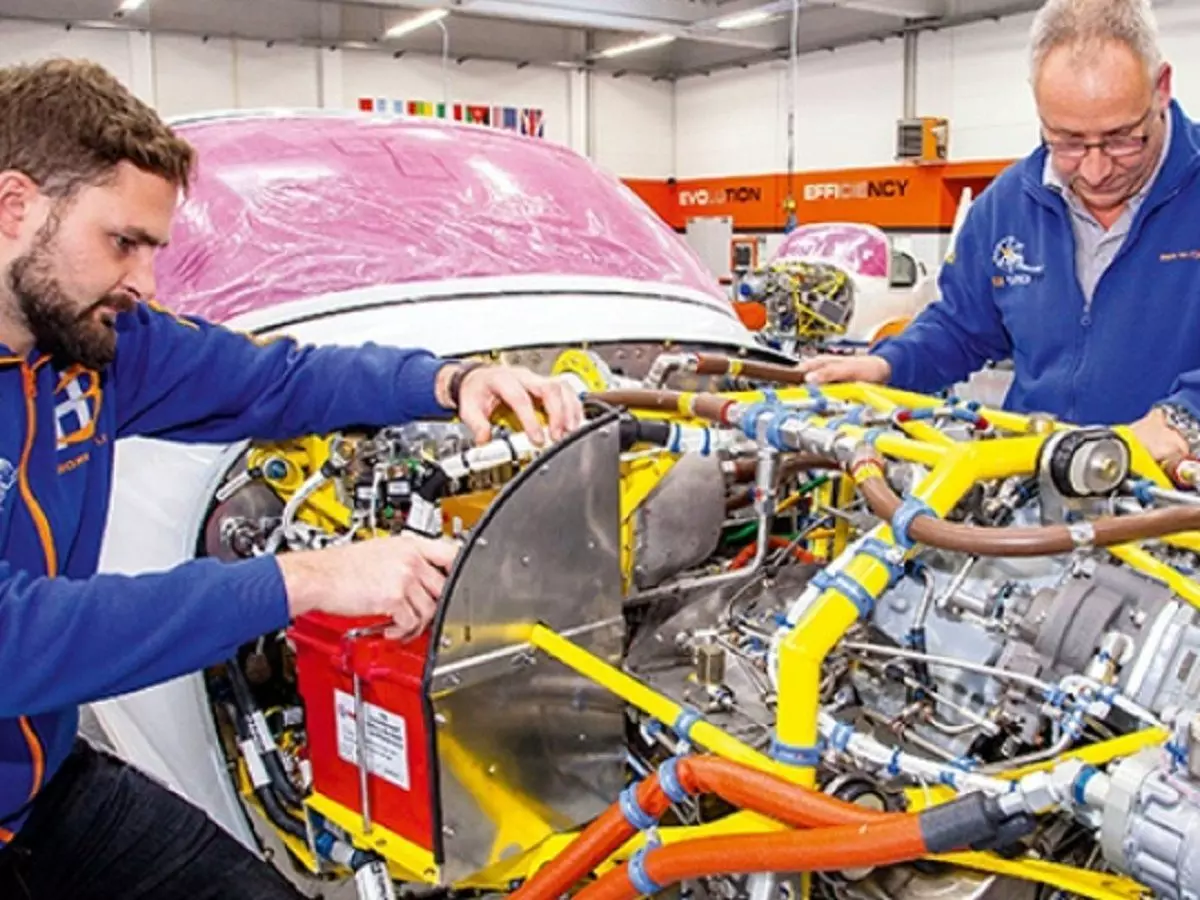Rolls Royce Successfully Tested A Hybrid Engine In Helicopters And It Might Just Be The Future Of Aviation
Rolls Royce has begun ground testing a hybrid propulsion system for helicopters. The British firm opted for its M250 gas turbine engine for helicopters successfully testing its hybrid-electric version. The planned propulsion power from the new hybrid engine ranges from 500 kilowatts to 1 megawatt.

Electric drive-trains have taken to the skies, with many aviation startups already announcing their all-electric offerings post successful tests. Even the giants of the industry are not far behind. Rolls Royce, for instance, has now begun ground testing a hybrid propulsion system for helicopters.
Though not all-electric, consider the testing as a start for a new era of motors powering the flying vehicles. Rolls Royce says that the testing will pave the way for similar experiments on aircrafts in the near future. Two years time is what the company is gunning for.
The British firm opted for its M250 gas turbine engine for helicopters, successfully testing its hybrid-electric version in a ground demonstration setting using three operating modes: series hybrid, parallel hybrid and turbo-electric.
The planned propulsion power from the new hybrid engine ranges from 500 kilowatts to 1 megawatt. Once proved to be perfect, its implementation will range from hybrid helicopters, aircrafts and even eVTOLs (electric vertical take-off and landing vehicles).

Rolls Royce
Also read: This All-Electric Helicopter Has Just Created A World Record For The Longest Flight
The hybrid-electric engine comes as a courtesy of Rolls-Royce engineers based in the United States, UK and Singapore. A state of the art propulsion system, the engine integrates the regular M250 gas turbine engine with a high energy density battery system. Coupled to these are electric generators and power converters. The engine also uses advanced power management and control system to optimise overall propulsion performance through efficiency gains, lower emissions and reduced noise.
The M250 gas turbine engine comes as an interesting choice for the experiment. The propulsion system has had a legacy in its more than 5 decades of existence. Close to 33,000 M250 engines have empowered 170 varieties of military, civilian aircrafts and helicopters, clocking more than 250 million flight hours within the time frame. The numbers were enough of a testimony for its power density and reliability for Rolls Royce to select it for the experimentation.

Rolls Royce M250 Engine (Image: Rolls Royce)
Also read: Meet Gacha, World's First All-Weather Self-Driving Bus From Finland, And Also The Cutest
With the testing taking place at Rolls-Royce¡¯s facility in Indianapolis, the three configurations of the M250 hybrid engine were put to work for takeoff, cruise, landing and taxiing. The configurations included a series hybrid, wherein the engine charges the battery system which in turn provides the power for the thrust, a parallel hybrid using both the systems and a turbo electric mode using the engine only as a turbo generator to power the flight.
Rolls Royce has always been at the pioneering helm in various modes of transportation. Their recent efforts to bring electric (or hybrid) capabilities to aircrafts will surely have a major impact on the way aviation works around the globe. Dr. Mike Mekhiche, deputy director of Rolls-Royce Electrical put this into words "The successful testing of the hybrid M250 system is an important step forward in providing a hybrid-electric propulsion system that will enable a new class of quieter and cleaner air transport."
